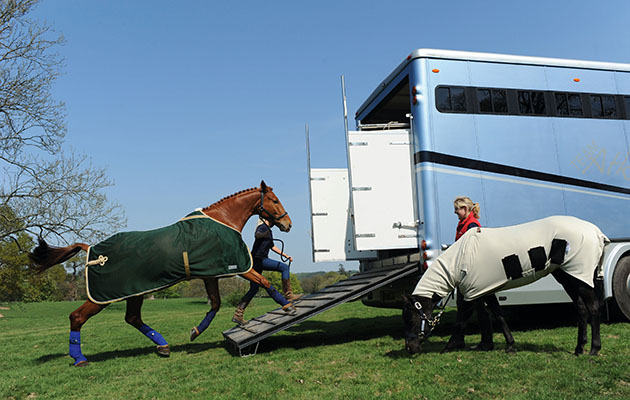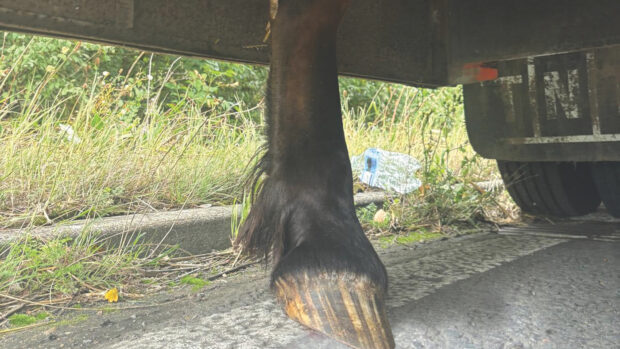As temperatures around the UK continue to soar, vets and welfare organisations are warning owners to keep their horses cool and hydrated.
Dehydration will not only affect a horse’s performance — it can also be life threatening. Earlier this month (17 July) in Utah, USA, 10 horses were found dead in a field, believed to be due to dehydration.
“There was no water source for the horses,” said a police officer of Great Salt Lake.
H&H vet Karen Coumbe said that thankfully she hadn’t heard of any such extreme cases over here, but stressed the importance of providing shade from the sun and a clean and plentiful water supply.
On average a 500kg horse (thoroughbred-size) drinks 12-40 litres of water a day.
“Never underestimate the amount of water hot horses require in warm weather, especially if they have been exercised or travelled,” she added. “The old cliché of you can take a horse to water but you can’t make it drink, still applies as some overheated horses are reluctant to drink as much as they should.”
She also warned that signs of dehydration can be hard to spot until the case is severe and the traditional skin pinch test (indicating decreased skin elasticity) is not always reliable.
“Horses can easily consume more than double their normal water intake in hot weather, so be prepared,” added a spokesman for the British Horse Society.
“If horses are out together in the field, make sure that more than one water source is available so that the submissive members of the group aren’t prevented from drinking by bullying. After riding hose the horse down all over with cool water.”
Hot horseboxes
Karen Coumbe also warned of travelling horses during the heatwave. “Owners should be aware of the stress for horses stuck in trailers and poorly ventilated lorries, especially in heavy traffic,” she added.
Victoria Walton from rural insurers NFU Mutual echoed this. In around 10% of the breakdown calls the company has received in the past few weeks the owners did not have any water with them at all.
“Keep travel accessories to a bare minimum, make sure that all available vents and windows are open and ensure that you carry more water than you need,” she said. “A simple breakdown is likely to add at least an hour onto your journey but a motorway delay could leave you sat in stationary traffic for several hours.”
However, don’t forget when carrying extra water check that you do not exceed your weight restrictions — as a general rule, one litre of water weighs 1kg.
“Driving carefully will help to keep your horse cool too as the more balancing he has to do, the hotter he’ll get,” added World Horse Welfare’s Hannah Westen.
Keeping cool at shows
Heat is not just a problem en route to competition, but also at the show. Horses should have access to shade and water. Although obvious, some owners forget this.
Showing producer Katie Jerram touches on this problem in her column in this week’s Horse & Hound magazine (p70). “Walking round horsebox parks, it’s evident that some people don’t realise that leaving horses standing on their vehicles without enough ventilation and attention subjects them to overheating,” she said.
In humid weather horses will find it harder to cool down after work — and as they sweat they lose water and electrolytes. Extra electrolytes may help, especially after exercise.
Signs of dehydration
➤ Dry or tacky gums
➤ Reduced amounts of dark urine
➤ Reduced skin elasticity
➤ Reluctance to work and loss of appetite
➤ Increased temperature, pulse and respiratory rates
➤ Cool extremities and sunken eyes are a sign of extreme problems
Read more about dealing with dehydration in horses




